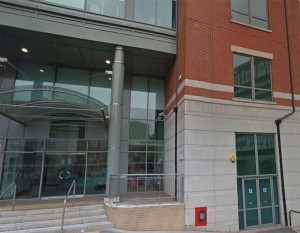
Freeths is a national law firm offering services to a wide range of commercial and private clients. The firm has clients throughout the UK and many of those clients have strong international connections. The firm is the 66th largest in the UK, with a team of over 600 operating from offices in Birmingham, Derby, Leeds, Leicester, London, Manchester, Milton Keynes, Nottingham, Oxford, Sheffield and Stoke on Trent. In recognition of organisations that demonstrate high levels of employee engagement, the firm has been awarded star status by Best Companies for 2013. The Legal 500’s UK rankings also put the firm as a regional leader in no less than 28 categories and 61 partners are recognised by Chambers UK as leaders in their field.
Requirement to comply with EU regulations
 As an organization that as of the 31st of December has more than 250 employees and turnover more than £38.9m, Feeths have legal requirement to comply with the EU directive and undertake the Energy Savings Opportunity Scheme (ESOS) obligations by the 5th of December 2015.
As an organization that as of the 31st of December has more than 250 employees and turnover more than £38.9m, Feeths have legal requirement to comply with the EU directive and undertake the Energy Savings Opportunity Scheme (ESOS) obligations by the 5th of December 2015.
The scheme is part of an EU directive, which requires the UK’s largest organisations to carry out an audit of their energy use including an assessment of the property they own or occupy. The government claim that the net savings through the scheme, as a result of more efficient energy use, could account to £1.6bn between now and 2030. But if that’s not enough of an incentive, as a stick, the government penalty for non-compliance could be up to £90,000. Which would have applied to Freeths!
The requirement for the ESOS was also aligned with and accompanied exiting environmental policies and Freeths corporate objective to obtain ISO 50001 certification to demonstrate commitment to responsible property management, reducing their running cost and to the environment.
IEBS Solution
Freeths appointed Integrated Energy Building Services (IEBS) as energy partner to undertake ESOS complaint energy audits.
Using their wealth of knowledge, experience and resources including approved ESOS lead assessors; IEBS carried out the energy audits for the sites under Freeths occupancy. Using IEBS integrated energy efficiency program methodology to manage the process the audits addressed the ESOS requirements and client specific needs. These requirements included: Calculation of total energy consumption and definition of significant energy consumption by application (building and transportation), review of energy performance, including variation of performance with time and information on energy intensity and establish clear information on potential savings, assessed where possible using life cycle assessment rather than simple payback.
IEBS were responsible for managing and coordination of the entire process from obtaining the energy data through to presenting the final report and recommendations to senior management. Throughout the auditing process the challenge and key to the success was stakeholder management and communication at all levels within the organization. The successful planning, coordination and management of the process and challenges led to the audits and final report being issued and presented to Freeths in under 4 weeks.
The energy audit and report has not only helped Freeths fulfill the immediate aim of compliance with ESOS obligations, but has also assisted with developing their for short, medium and long term energy strategy. By carry out the audits IEBS has identified a number of facility improvement measures that will help Freeths reduce energy consumption and carbon emission and reduce energy cost by approximately £352,000 per annum across their estate.
IEBS are now continuing to work with Freeths to implement a selection of the energy improvement schemes and assist with the funding mechanism to provide Freeths a cost neutral execution method (energy cost savings per month is more than the monthly payment plan for installation of the projects)
Testimonial
Lucy Boam, Head of Administration & Facilities Management for Freeths, commented:
After being made aware of the legal requirements regarding ESOS and knowing that we had to comply with the EU directive we formed a relationship with IEBS who assisted us and built a solid relationship with us from the very start.
Having 11 offices and over 700 employees we very much fell into the category of having to have such audits carried out. After an initial meeting with IEBS they were very clear on the regulation and what we would have to do to comply.
With us knowing very little about the requirement IEBS were very professional, helpful and when it came to assisting they successfully guided us through to the stage where we became compliant as a firm.
In carrying out the planning and auditing stage, IEBS have helped us identify in the region on £350,000 per annum in energy savings through deploying differing types of technology and systems. The next stage is to assess and implement these projects with IEBS who will manage our energy construction program in line with business benefits and high impact.
We will also be considering the funding options that IEBS can offer, which we hope will aid implementation of the projects in advance of annual budget allocation. Enabling us to recognise the savings and reduction quicker.
